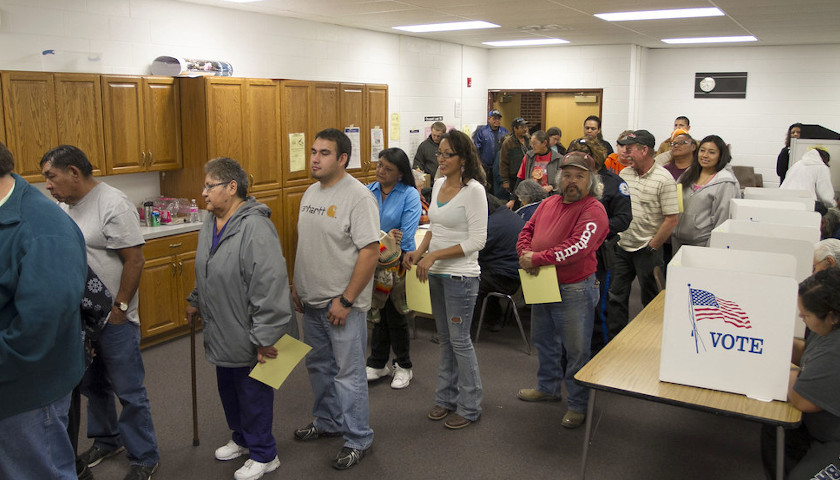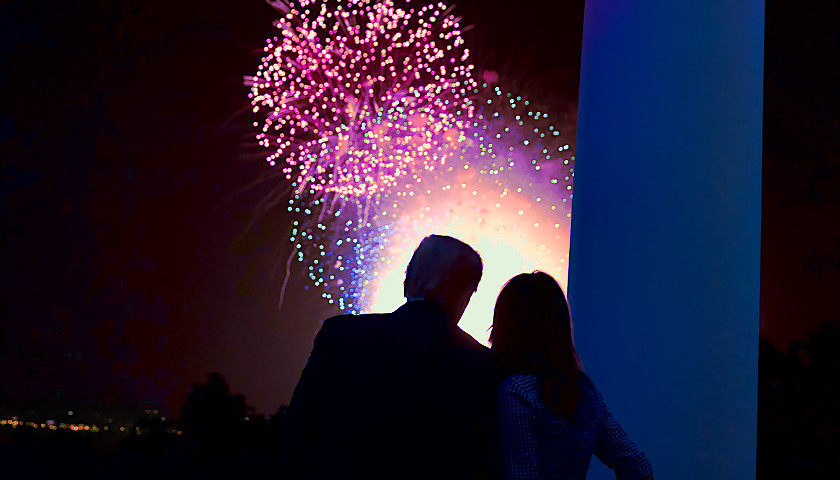A coalition of Arizona legislators and about 10 conservative groups launched an effort last month to get an initiative on the ballot that would combat voter fraud, the Arizonans for Voter ID Act. They began collecting signatures last week. Spearheaded by the Arizona Free Enterprise Club, the four-pronged plan would end the practice of voting without an ID — even for mail-in or dropped-off ballots. By requiring ID, it would be impossible to conduct ballot harvesting.
Scot Mussi, president and executive director of The Arizona Free Enterprise Club, told The Arizona Sun Times that the response from people interested in helping has been tremendous.
“At the Constitution Celebration event in Queen Creek this past weekend, there were long lines of people waiting to sign the petition or seeking to become petition circulators,” Mussi said.
He added many politicians and others have reached out eager to join the effort.
In addition to requiring voter ID on mailed-in ballots and enhancing the requirement for dropped-off ballots, the initiative improves in-person voting ID requirements and provides a free voter ID if desired.
“With this initiative, no matter how you vote, when you vote, or where you vote, you will be required to provide identification,” he said.
Rep. Jake Hoffman (R-Queen Creek), one of the key legislators behind the initiative, told The Sun Times, “Voter confidence is at crisis levels, both nationally and here in Arizona. Before the November 2020 election, roughly one-third of Democrat voters anticipated voter fraud. Securing Arizona’s election isn’t just sound policy, it is a civil rights imperative and in today’s divided political environment there are few issues that unify Arizonans like universal voter ID, bringing together nearly all voters, regardless of Party affiliation, which is why voters from South Phoenix to Queen Creek are lining up to put this initiative on the 2022 ballot.”
Organizers found there was a need for the ballot security measures because Arizona is one of nine states that has permanent vote-by-mail lists, making it extremely easy to vote, but it’s also the only one of the nine that lacks meaningful restrictions to deter voter fraud. The group tweeted on September 15, “Voters do not have to choose between secure elections or accessible elections. Easy to vote and hard to cheat — that’s the benchmark for elections. #azvoterid.”
Multiple states already require voter ID for mail-in ballots, according to azvoterid.com. Minnesota and Georgia have the same requirements in place that the initiative proposes. North Carolina, North Dakota, South Dakota, Ohio, and Florida require similar identification to what the initiative proposes for requesting an absentee ballot.
According to the group’s FAQ, a ballot initiative is necessary instead of trying to pass the reform legislatively because the legislature voted down universal voter ID last session. Additionally, there is a loophole in current law that allows people to use a utility bill as an ID which cannot be changed by the legislature since it was implemented through a voter-approved law.
Arizona is one of five states that made significant changes to its voting laws within the past couple of years. One of the new laws prohibits election officials from mailing ballots to voters who have not requested them, with the exception of those on the permanent early voter list, known in Arizona now as the Active Early Voter List. Another law removes voters from the Active Early Voter List if they have not voted in the last two consecutive elections. A law enacted this year bans the use of private funding to conduct elections.
Multiple laws were passed this year in reaction to the behavior of Democratic Secretary of State Katie Hobbs’ actions. One transfers the authority for defending Arizona’s election laws from that office to the Arizona attorney general’s office. After Hobbs refused to defend Arizona’s laws against ballot harvesting and voting in other precincts, Arizona Attorney General Mark Brnovich stepped in and defended them all the way to the Supreme Court, which he won in Brnovich v. DNC. Another law requires the secretary of state to give the attorney general as well as an entity designated by the legislature access to the voter rolls to ensure they are compliant with federal law. And a third law prohibits state officials from changing election dates and deadlines without a court order.
To get involved with the initiative, Arizonans can sign up here. There is training available on the website for petition circulators. The group is also looking for notaries. The initiative needs 237,645 valid signatures by July 7, 2022 in order to be placed on the ballot.
– – –
Rachel Alexander is a reporter at the Arizona Sun Times and The Star News Network. Follow Rachel on Twitter. Email tips to [email protected].
Photo “People Voting” by Wyofile Wyofile. CC BY 2.0.








